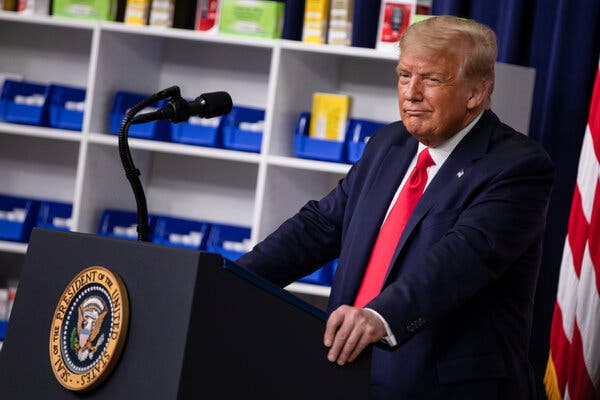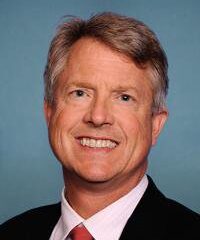Science
Trump Administration Considers Drug Price Cuts to Match Global Rates

The Trump administration is exploring a regulatory approach aimed at compelling drug manufacturers to reduce prices in the United States to levels that align with those in other affluent nations. This initiative, hinted at in a regulatory notice that was briefly available on a federal website, refers to a “global benchmark for efficient drug pricing (GLOBE model)” under the auspices of the Department of Health and Human Services. The specifics of the proposal remain unclear, and the notice was subsequently removed without explanation.
According to reports, President Trump has long advocated for a pricing model that would ensure U.S. payers receive drug prices equivalent to the lowest prices paid in peer countries. This initiative was a prominent topic during his first term, during which the Medicare agency attempted to implement a similar policy in 2020 aimed at a limited range of drugs. However, this effort was halted by legal challenges and ultimately withdrawn by the Biden administration.
Should the current administration proceed with this regulatory plan, it is expected to trigger significant legal opposition from pharmaceutical companies, which have consistently resisted such measures due to their potential to severely impact profits. Alex Schriver, a spokesperson for the trade group PhRMA, stated, “Importing foreign price controls would undermine American leadership, hurting patients and workers.” He further suggested that a more effective method for addressing price disparities would involve ensuring that foreign nations contribute their fair share for innovative medicines.
As part of his ongoing efforts to reduce drug costs, President Trump set a deadline of September 29, 2020, for drug manufacturers to voluntarily lower prices, following an executive order issued in May. The order indicated that if voluntary compliance did not yield sufficient results, the administration might propose a rule-making plan to establish “most-favored-nation pricing.” This term refers to a pricing strategy intended to align U.S. prices with those of comparable countries.
During a recent news conference, President Trump reiterated his commitment to reducing drug prices, claiming that the U.S. subsidizes prices for other nations. “We’re not doing that anymore,” he asserted, emphasizing the urgency of the issue. The previous attempt to link U.S. drug prices to international prices focused specifically on medications administered directly by doctors, such as chemotherapy treatments. This initiative faced legal obstacles, which prevented it from being implemented, but the courts did not address the legality of the policy itself.
In recent weeks, several pharmaceutical companies have made announcements in response to the administration’s pressure, although they have not committed to lowering U.S. prices. For instance, Eli Lilly announced it would increase the list price of its weight-loss drug Mounjaro in the UK, while Bristol Myers Squibb indicated it would align the price of a new schizophrenia treatment in the UK with U.S. prices. The company also embraced a Trump administration demand by initiating a direct-to-patient sales plan for the blood thinner Eliquis.
The potential for a mandate that would lower U.S. drug prices to European levels represents a significant concern for the pharmaceutical industry, which is facing increasing scrutiny from the Trump administration. Recently, officials indicated that they would consider enacting regulations that could ban drug advertisements from television. Additionally, the industry is preparing for the possibility of tariffs on imported medications, which have been a long-standing threat from the Trump administration.
Throughout this term, President Trump has advocated for drug price controls less explicitly than during his initial time in office. His current focus has shifted towards executive orders and public statements urging pharmaceutical companies to voluntarily adjust their pricing structures both domestically and internationally. In letters sent to drug manufacturers in July, he demanded lower prices for “every single” patient enrolled in Medicaid and for “all new drugs” across both government and commercial insurance markets.
Currently, brand-name drug prices in the United States are, on average, three times higher than those in comparable nations. This pricing disparity, combined with the substantial size of the U.S. market, underpins the pharmaceutical industry’s business model. Trump and his supporters have framed this situation as inequitable, noting that while countries in Europe negotiate aggressively with drug manufacturers, there is a prevailing reluctance in the U.S. to deny patients access to new treatments.
In the U.S., drug prices often begin at high levels and only decrease significantly when multiple patent-protected alternatives enter the market. Recent legislation passed during the Biden administration grants Medicare limited authority to negotiate prices for a select number of older prescription drugs each year, but the scope of this authority is restricted.
Interestingly, both drug manufacturers and Trump officials share a common viewpoint regarding the perceived underpayment for medicines in European countries. In a recent podcast, Howard Lutnick, the commerce secretary, criticized Switzerland, home to leading pharmaceutical firms like Roche and Novartis, for profiting excessively from sales in the U.S. market. “They sell us pharmaceuticals like it’s going out of style,” he remarked, highlighting concerns about the profitability of these companies in relation to their contributions to global healthcare.
In conclusion, as discussions surrounding drug pricing intensify, the potential ramifications of the Trump administration’s proposed regulations could significantly alter the landscape of pharmaceutical pricing in the United States, with wide-reaching implications for patients, healthcare providers, and the pharmaceutical industry itself.
-

 Science1 month ago
Science1 month agoNostradamus’ 2026 Predictions: Star Death and Dark Events Loom
-

 Technology2 months ago
Technology2 months agoOpenAI to Implement Age Verification for ChatGPT by December 2025
-

 Technology7 months ago
Technology7 months agoDiscover the Top 10 Calorie Counting Apps of 2025
-

 Health5 months ago
Health5 months agoBella Hadid Shares Health Update After Treatment for Lyme Disease
-

 Health5 months ago
Health5 months agoAnalysts Project Stronger Growth for Apple’s iPhone 17 Lineup
-

 Technology5 months ago
Technology5 months agoElectric Moto Influencer Surronster Arrested in Tijuana
-

 Science2 months ago
Science2 months agoBreakthroughs and Challenges Await Science in 2026
-

 Education5 months ago
Education5 months agoHarvard Secures Court Victory Over Federal Funding Cuts
-

 Health5 months ago
Health5 months agoErin Bates Shares Recovery Update Following Sepsis Complications
-

 Science4 months ago
Science4 months agoStarship V3 Set for 2026 Launch After Successful Final Test of Version 2
-

 Technology7 months ago
Technology7 months agoMeta Initiates $60B AI Data Center Expansion, Starting in Ohio
-

 Technology6 months ago
Technology6 months agoDiscover How to Reverse Image Search Using ChatGPT Effortlessly





















